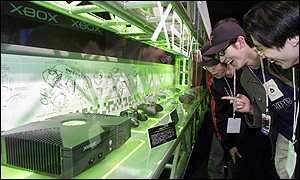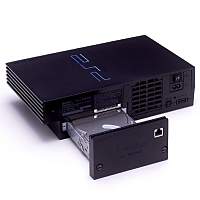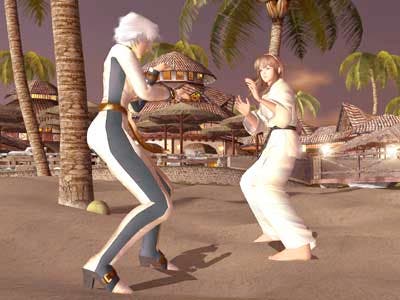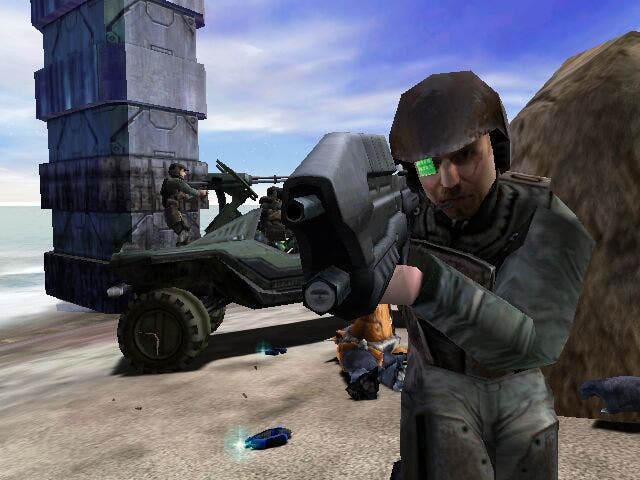Ménage à Trois
Article - Almost exactly a month before the Japanese Xbox launch, we consider Microsoft's chances
If we can abandon the 'Euro' premise for a moment, we can see that in Japan the console war is starting to shape up interestingly. The homeland of Nintendo and Sony, market share is firmly weighted in Sony's favour. However, continuing to dominate the Japanese market in 2002 won't be so easy. On February 22nd, Microsoft will introduce a new contender.

Rising 'Soft
After years of PSX success, Sony couldn't put a foot wrong with the console's successor. With a vague idea of Nintendo's schedule and a view to exterminating Sega once and for all, Sony launched PlayStation 2 in March of 2000, but it would be a year before truly stunning software made it to PlayStation 2. Developing for the original PlayStation was pretty easy compared to the Nintendo 64 and even the Dreamcast. Developers had the option of using middleware to harness the power of the console, and this produced some mighty fine games. Much to Sony's chagrin however, many started to circumvent the middleware in favour of working directly 'with the metal' so to speak. This was seemingly the only way for developers to push the console beyond its implied limits. This created two problems though. Firstly, it meant that the forthcoming PlayStation 2's backwards compatibility might be at risk, and secondly, it nurtured the belief that developers liked working directly with the metal. After thrusting PS2 devkits into the grubby hands of developers and publishers the world over, this was exposed as a mistake. The machine's low-level requirements were nigh on impenetrable. So it's taken a year to harness the machine's capabilities, and some of its best software is actually based on third party middleware, such as Renderware, which powers games like Activision's Tony Hawk's Pro Skater 3 and Rockstar's Grand Theft Auto III. The problem with middleware though is that if you want to do something and the developer of the middleware hasn't implemented it, you can't really do it unless you bypass the middleware in favour of going directly for the metal. And if you're doing that, the middleware might seem like a silly expense in retrospect…

Breaking and Entering
Japan, January 2002. The console market is now dominated by a console without a definitive set of tools. The promise of a new Sony toolkit early this year is enough to tide developers over, and several major third party additions to the PS2 developer's arsenal are on the horizon. Sony has the support though. You only have to look at some of the games appearing on the platform to fathom that. Compared to the PlayStation 2, Nintendo's GameCube has no friends at all. A handful of third party hopefuls are included on the titanic list of first and second party titles; games like Rogue Leader, Super Smash Brothers Melee and Pikmin are selling through the roof in the US and Japan, but without much to back them up. As far as the early months of this year are concerned, the PlayStation 2 and GameCube are likely to continue selling unabashed. The software supplies for both are regularly replenished, and in both cases there are some heavy hitters on the way. This is the market into which Microsoft will boldly step on the 22nd of February. A market dominated by one tough-to-design-for superpower and an also-ran in the shape of GameCube. The Xbox by comparison is relatively easy to develop for, using industry-standard (thanks largely to Microsoft's mallet-to-square peg approach) DirectX-based APIs and an impressive array of hardware. It's priced reasonably in Japan (especially when you consider the amount of extras rival console owners will have to purchase and bolt on to secure the same Internet and hard disk functionality), and it has third party developer support coming out of its ears, even amongst the Japanese! Is this really the picture of a platform doomed to failure?

Not Likely
I think the answer is a resounding no. From the start, the general consensus has been that Microsoft would dominate the US, Sony Europe and Sony or Nintendo Japan. There has been little question of an upset in Sony and Nintendo's home territory, but if Microsoft play their cards right, they might find themselves in a better position than many had expected. Microsoft's first move in courting the Japanese gamer was to eliminate the Death Star-sized gamepads in favour of a more compact design which fits the human hand. Apart from this though, Japanese gamers also care about broadband adapters and hard disk storage. Although Nintendo is apparently repulsed by the very notion of such PC-grade components, Sony isn't, but the price of bringing the more-than-18-month-old PlayStation 2 console back into the running will be more than most will be happy to bear. The Xbox launches with the ability to link up to a broadband network, and thanks to a partnership with NTT DoCoMo, Microsoft may well have one in place for Q1 2002, or at worst sometime during the summer. That's hardly out-of-the-box support, but it's just as close as its largest competitor, and certainly a darn sight closer than Nintendo, who seem happy to ignore broadband and Internet access in general until it jumps up and bites them in the behind. As far as the hard disk storage goes, this is another area of Microsoft dominance. A whopping ten gigs for storing savegames, music files and for swapping game data in and out of hardware. With this built in from the start, along with more powerful hardware in general and a comparatively favourable price tag, the Xbox is a healthy proposition. Ah, but what about developer support?

More Than Meets The Eye
Well what about developer support? It's certainly there. Tecmo's Dead or Alive 3, arguably the best-looking videogame of all time, not only launches with the console, but took a paltry nine months to produce! Wisely choosing to promote native Japanese software instead of its regurgitated, over-hyped and over-rated Western flagship Halo, Jet Set Radio Future will be a much-respected launch title - enough to sell the console on its own merits, in the eyes of some - along with games such as Silent Hill 2, Genma Onimusha and Project Gotham Racing. By including a selection of non-exclusives alongside its big hitters, Microsoft hopes to woo a number of Sony's least loyal followers. And in the future? Microsoft has already forged an alliance with Namco, which will see games like Dead to Rights and, more importantly, Soul Calibur 2 and the next Ridge Racer appear on the console. Last week the company was spotted talking to Enix and Squaresoft, the two big guns as far as videogame software goes in Japan. It is thought a mutual interest in selling more games than is healthy might steer the two venerable development giants toward Microsoft's camp, although Sony's recent stake in Square might stand in the way of this. Either way though, the rumour alone, plus the promise of 22 titles within a month of the console's February release will be enough to shift boxes. In fact, as far as Japan's concerned, there's very little to complain about in the Microsoft package at the moment. If it gets a spot of luck and its broadband network goes off without a hitch, there should be little stopping the 'surprise' success of the console in Japan.
Conclusion
It seems to me that after a decade of Japanese console supremacy, the very thought of a successful Western console is too difficult to bear for some. Nobody really knows how the discerning Japanese buyer will react to the console, because it's been so long since the last Western console invasion that everyone has to phone up their Dad and ask if he remembers it… From our perspective, the only hurdle will be the physical bulk of the console. Assuming the Japanese can fit it inside their homes, we see no reason why they won't buy it, and if they do, then Microsoft will have won.
-
Square and Enix talking to Microsoft
Microsoft to gain foothold in Japan
Japan to get custom Xbox controller








